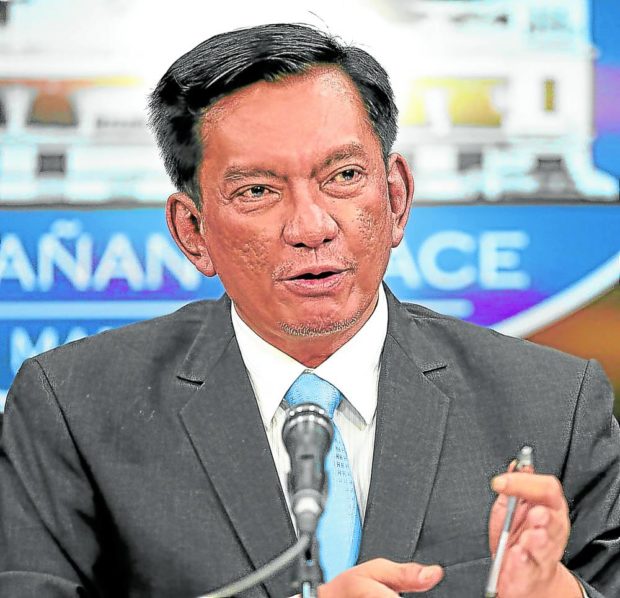Salceda says 7.6% GDP growth for Q3 not a fluke: We can hit 8% by Q4

FILE PHOTO: Albay 2nd District Rep. Joey Salceda
MANILA, Philippines — The 7.6 percent growth of the country’s economy for the third quarter of 2022 compared to the same period in 2021 is not a fluke, as most economists predicted a number near the said figure, according to Albay 2nd District Rep. Joey Salceda.
Salceda, an economist by profession, said in a press briefing on Thursday that the Philippine economy shows exceptional strength after posting the 7.6 percent gross domestic product (GDP) growth despite external factors and high inflation rates.
“‘Yong first quarter report po ng ating Presidente is consistent with many bullish projections actually […] ‘yong consensus po ng mga ekonomista is 6.2 (percent), ang lumabas po is 7.5 (percent). So it’s not a fluke, hindi ‘to tsamba, the growth is real and is likely to be sustainable, pero syempre, may kailangang mga gawin,” he said.
(The first quarter report released by the President is consistent with many bullish projections. The consensus of economists is 6.2 percent GDP growth, but the figures showed a 7.5 percent increase. So it’s not a fluke, it’s not a stroke of luck, the growth is real and is likely to be sustainable, but of course, we have to do things.)
“It’s showing signs of exceptional strength amid global headwinds, lalong-lalo na ‘yong pagtaas ng interest na napaka-aggresive po doon sa US at saka ‘yong giyera sa Ukraine, at ‘yong pagtaas po ng food prices sa buong mundo,” he added.
Article continues after this advertisement(It’s showing signs of exceptional strength amid global headwinds, especially with the aggressive rise in interest in the US and the war in Ukraine, and the increase of food prices worldwide.)
Article continues after this advertisementSalceda, chairperson of the House of Representatives Committee on ways and means, also said that higher activities for the Christmas season compared to the past years — where the COVID-19 pandemic restricted movement — might lead to stronger economic performance and a possible fourth-quarter GDP growth of 8.0 percent.
“The growth was actually evident kung tinignan mo lang ‘yong Google Mobility Report for ASEAN countries, which showed the country’s growth in mobility was 34 percent more in retail, and 38 percent more in workplaces. Ito ay despite the fact na ‘di ba, ‘yong mga BPO humingi ng exemption sa FRIB na sila ay bumalik na […] pero kung lalong nakabalik sila sa workplace, mas mataas pa ‘to,” he claimed.
(The growth was actually evident if you looked at the Google Mobility Report for ASEAN countries, which showed the country’s growth in mobility was 34 percent more in retail, and 38 percent more in workplaces. Moreover, even though some business process outsourcing companies asked for an exception to return to their offices, mobility increased when they returned.)
“So obviously I think it is safe and I think it is very feasible na mukhang (that) by December given the Christmas season — a stronger Christmas season — we will most likely hit 8 percent,” he added.
The lawmaker also noted that remittances from overseas Filipino workers increased in 2022, from $2.60 billion in August 2021 to $2.72 billion in August 2022. This, coupled with the weak peso, drove consumption.
“‘Yong OFW remittance figures also increased in August, at ito ang nagpalakas sa konsumo, dahil po well, ‘yong piso humina pero and ‘yong cash remittances in August ay P3 billion higher than last year. The growth in remittances was the fastest since 4.4 percent in June, that really boosted household consumption. So hindi talaga laging masama ang mahinang piso,” he said.
(OFW remittance figures also increased in August, which boosted our consumption, even if the peso weakened, the cash remittances in August were P3 billion higher than last year. Moreover, the remittance growth was the fastest since 4.4 percent in June, which boosted household consumption. So, a weak peso is not always bad.)
Salceda said that the COVID-19 policies of the government, which are moving towards relaxation, would be crucial for the economy. However, he warned that inflation, or the rising prices of goods and services, threatens the improving economy.
“We can sustain this growth, especially given the Marcos administration’s shift from pandemic to endemic mode for COVID-19. Moving forward, the biggest threat to sustaining growth next year is still inflation. As I advised the President, it will still be food, feed, and fuel,” he noted.
Earlier, National Statistician Dennis Mapa confirmed that the country’s output of goods and services grew faster than the second quarter and the third quarter of 2022 GDP growth figures.
Economic Planning Secretary Arsenio Balisacan said this GDP rate places the Philippines second in the Asean region regarding economic growth, behind Vietnam’s 13.7 percent but ahead of Indonesia’s 5.7 percent.